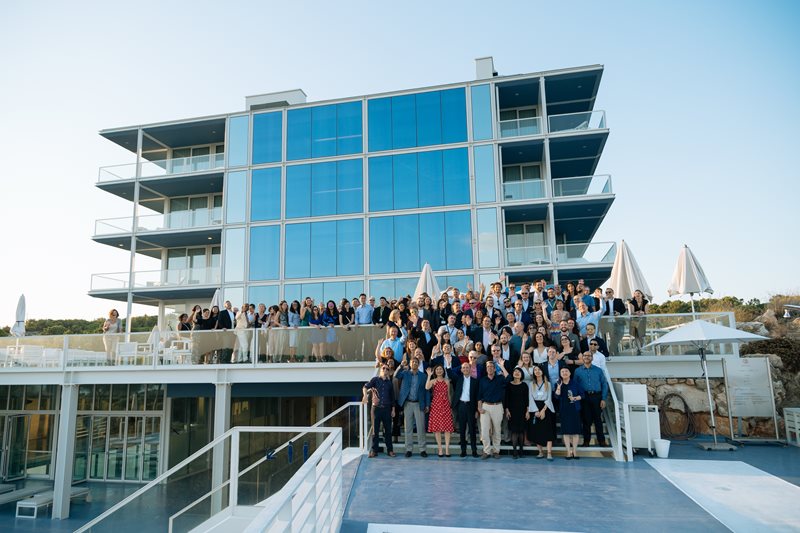NEWS
Tuesday 24 September 2019
With multinational employers and global employee benefits consultants joining us on Thursday 12 September, day two of the MAXIS Global Forum was even bigger and busier than day one!
Mental health a key concern for employers
The first session of the day opened with an inspiring exploration of the future of mental health support in the workplace. Dr Yi Mien Koh, Managing Director, Health and Employee Benefits & Executive Committee member at AXA Hong Kong, showcased the latest innovations in workplace wellness including how virtual reality (VR) technology can be used to tackle mental health issues. VR headsets are already being used to provide real-time mental health assessments and treatment within the workplace.
Mental health has become a universal concern for employers, as more than one in three employees are now impacted by a mental health issue. Tackling this has become a necessity for employers, not just to attract and retain employees, but to keep them happy, healthy and productive in the workplace.
Mindfulness, Dr Koh said, can be embraced to help protect against stress related issues. Digital tools can be used to treat people with mild to moderate anxiety and depression, helping build resilience and coping skills. Online support was identified as better in many instances than programmes based solely on face-to-face support because of the consistency of therapy provided and 24/7 access.
The future of healthcare
While health and wellness issues have moved up the board agenda for many multinationals, with increased investment in preventative measures, there will always be employees that do require medical treatment and support. Undoubtedly health and wellness and the rising cost of medical are and are going to be key issues for employers going forward.
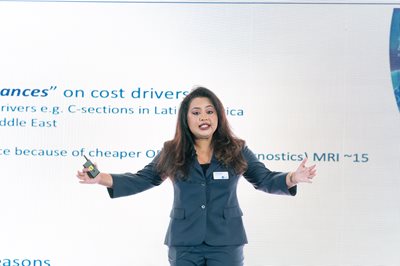 One of the biggest changes in the future of healthcare will be the increasing usage of personalised medicine, according to Dr Leena Johns, Head of Health and Wellness, MAXIS GBN. Dr Leena looked at how using medicine targeted specifically to a person’s genetic makeup will “flip the script” on conventional medicine. It will impact healthcare costs, the burden on social security systems and result in a reduction in the in ‘trial and error’ of the current prescription model.
One of the biggest changes in the future of healthcare will be the increasing usage of personalised medicine, according to Dr Leena Johns, Head of Health and Wellness, MAXIS GBN. Dr Leena looked at how using medicine targeted specifically to a person’s genetic makeup will “flip the script” on conventional medicine. It will impact healthcare costs, the burden on social security systems and result in a reduction in the in ‘trial and error’ of the current prescription model.
Data and healthcare was another key theme Dr Johns looked at, as she highlighted the need for employers to understand their medical claims data so they can implement targeted wellness campaigns that will have the biggest impact on medical costs and allow employees to live healthier and happier lives.
Dr Shawn Standridge, Corporate Medical Director at Procter & Gamble, continued in the same vain. He said that when you invest in health and wellbeing, commitment and engagement levels increase dramatically. Even just demonstrating that as a company you invest in these programmes is impactful – it is a key element of the employer brand for recruitment and retention. Dr Standridge also identified how his team of physicians can use data insights to develop preventative solutions to healthcare issues.
Financial Wellness
While employers look to put in preventative measures to reduce the impact lifestyle factors like diet, exercise and smoking have on employee health, one thing they may be missing is financial wellness.
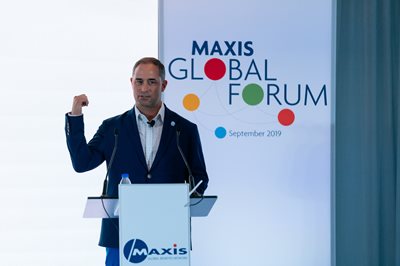 James Reid, Executive Vice President, Global Employee Benefits at MetLife, highlighted insights from MetLife’s latest Employee Benefit Trends Study 2019, which showed that in many markets over 30% of employees admit to spending more time thinking about financial issues at work than they should. And the links between poor finances and mental and physical health conditions are undeniable.
James Reid, Executive Vice President, Global Employee Benefits at MetLife, highlighted insights from MetLife’s latest Employee Benefit Trends Study 2019, which showed that in many markets over 30% of employees admit to spending more time thinking about financial issues at work than they should. And the links between poor finances and mental and physical health conditions are undeniable.
Savvy employers are realising that a financial wellness solution isn’t just a nice to have, it is a must for the future. James said that to build a best in class financial wellness programme employers need to:
- gather and assess employee data
- ensure a personalised approach
- make it easy for employees to participate
- measure the impact of programmes.
Employee benefits captives – maximising employee engagement and cost management
We were pleased to welcome a variety of EB specialists from leading multinational employers to Portugal to share their insights on the industry. Bill Fitzpatrick, Vice President of Corporate Risk Benefits at DHL Global, looked at how captives can really benefit employers.
He gave real life examples of how DHL Group has used the extensive medical claims data available through the captive arrangement to achieve local market discounts, implement health and wellness programmes and maximise employee engagement and overall health.
David Schupak, Regional Director for Western Europe, Middle East and Africa at MAXIS GBN, hosted a panel discussion on the same subject as two more multinational employers shared their insights on the value of employee benefits captives and how to build a relationship between the captive and the local teams.
- Chris Gallagher, Associate Director Global Risk Management at Procter & Gamble, looked at the importance of collaboration internally between risk and human resources teams to develop EB captive arrangements. He highlighted how P&G has benefitted from the underwriting capabilities of MAXIS GBN and a collaborative approach that has seen a level of trust built so each party intuitively understands the needs of the other. Chris also highlighted the importance of effective transition, relying on open dialogue, especially when introducing new solutions to local markets.
- Gregor Stephan, Senior Pension Consultant at Siemens Financial Services, discussed Siemens’ phased approach to captive development. He talked about the importance of captives for financing and de-risking and highlighted the importance of good data for projecting potential local market issues.
Growing a global EB programme and the role of local members
The theme of working collaboratively continued as Thomas Lienert, Regional Director, Northern, Central and Eastern Europe at MAXIS GBN, introduced a great panel of speakers who spoke openly about the challenges and opportunities for local insurers working with multinationals. 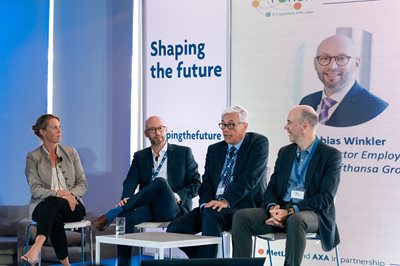
- Sina Gayot, Total Rewards Partner, EMEA at Lonza, shared how mergers and acquisitions have impacted decision making regarding employee benefits arrangements. She highlighted the value of MAXIS GBN with centralised information aiding the management’s EB provision and talked about the role of local insurers in educating their local offices.
- Tobias Winkler, Senior Director Employee Benefits at Lufthansa Group, discussed the future of employee benefits and said he would like to see greater flexibility in future benefits design and challenged local insurers to develop in this area to provide a great service to large multinationals.
- Heinrich Salmen, Head Center of Excellence Employee Benefit at NACORA, Versicherungsmakler GmbH (the in-house broker for Kuehne + Nagel) looked at multinational pooling and how it is evolving. He discussed the importance of strong partners and how technological innovation really helps local markets.
- Marc Raymond, Head of Compensation & Benefits at L’Oréal, highlighted that growth in pooling will come from innovation. He said, for L’Oréal, local insurers must demonstrate service solutions – focusing on issues such as mental health and financial wellness to provide the best service locally.
Data & digital innovation and the future of employee benefits
With data and digital innovation the theme for the day, it seemed fitting for the final session to look in-depth at the subject. Helga Viegas, Director of Digital & Innovation at MAXIS GBN, looked at the technological advancements that are shaping the future of the industry.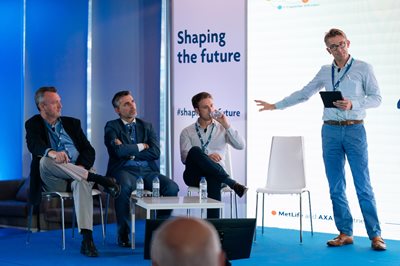
Alongside a panel of multinational EB consultants, Barry Perkins, Placement Leader, Global Benefits at Mercer, Sven Roelandt, Global Expert EB Financing Strategies at Aon, Brian Quinn, Founding Director at Granite Management and Mark Cook, Senior Director at Willis Towers Watson, Helga discussed industry developments such as:
- blockchain innovations, which will be a “game changer” for the industry
- global employee benefits platforms and the need for interactive and user-friendly tools with data visualisation and automated communications to improve accessibility and awareness of employee benefits
- data analytics, including new tools and dashboards helping multinationals make decisions on their global employee benefits strategy
- health and wellness technology and the apps that are making healthcare accessible the world over.
With a full day of discussions completed, the guests headed to The Oitavos terrace for a group photo, before heading to the Clubhouse for the Member Awards dinner and party. Find out who won our awards here.
Thanks to all our speakers and members for contributing to some of the most engaging discussions and debates as we continue to shape the future of global employee benefits.
